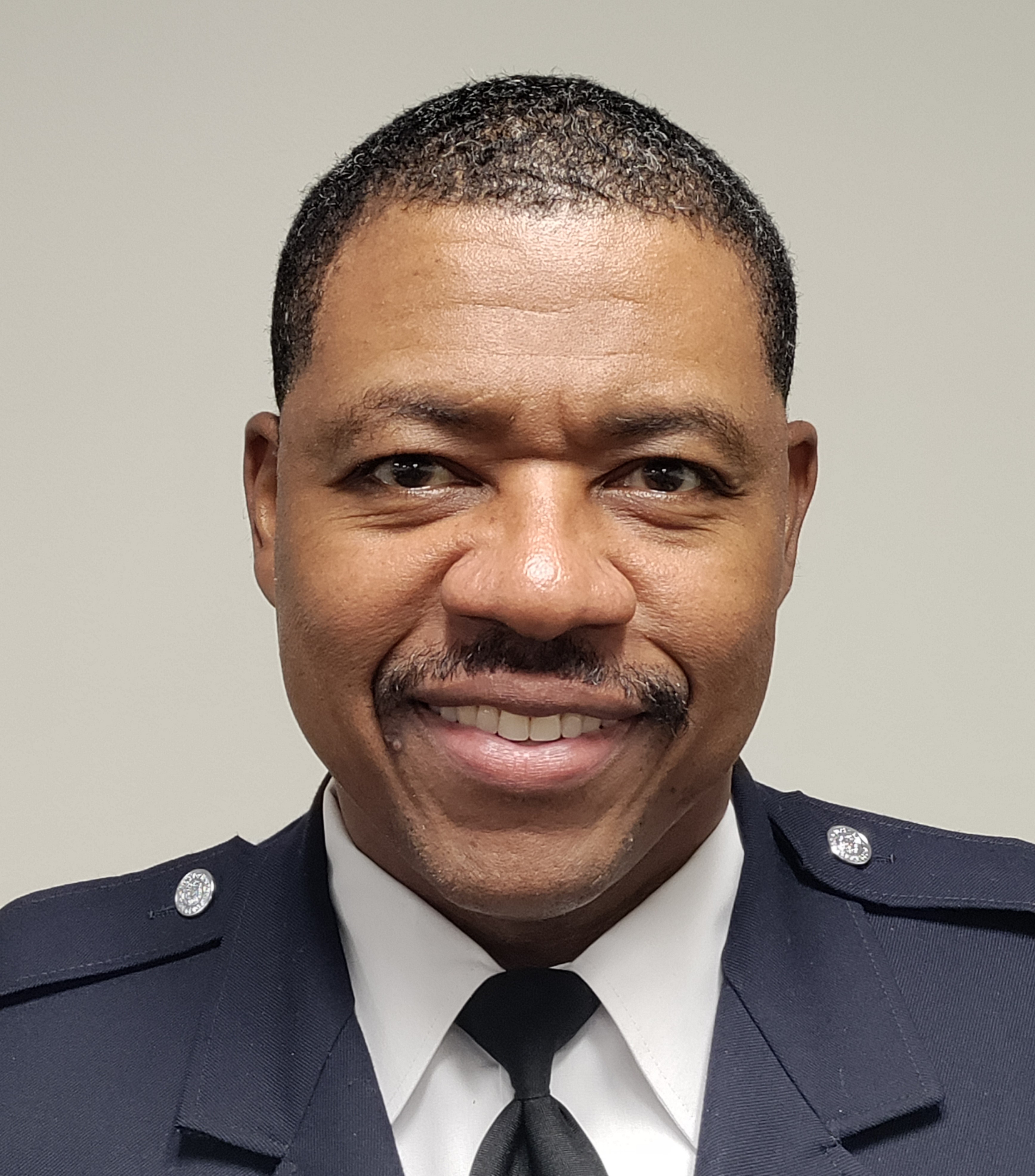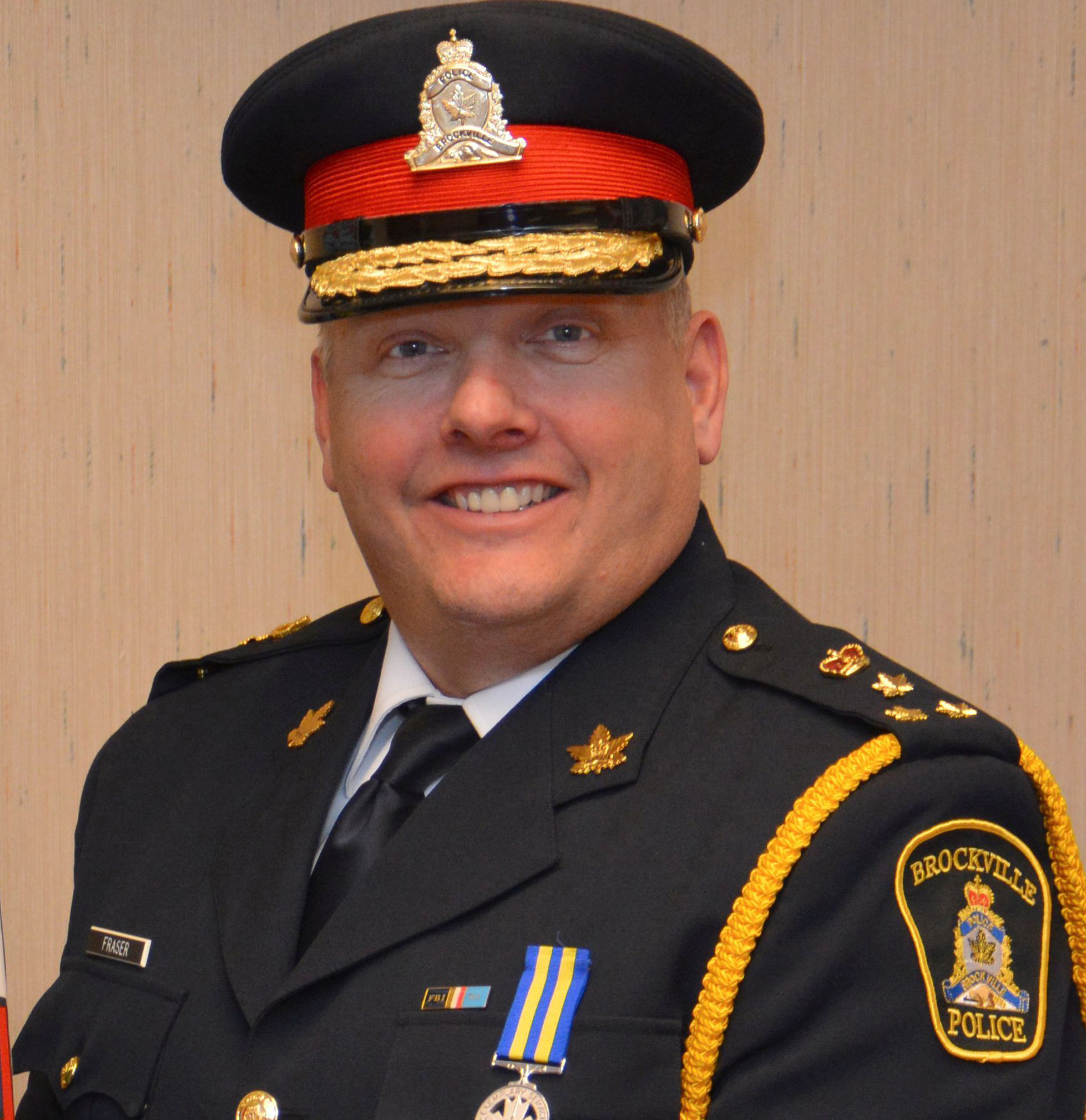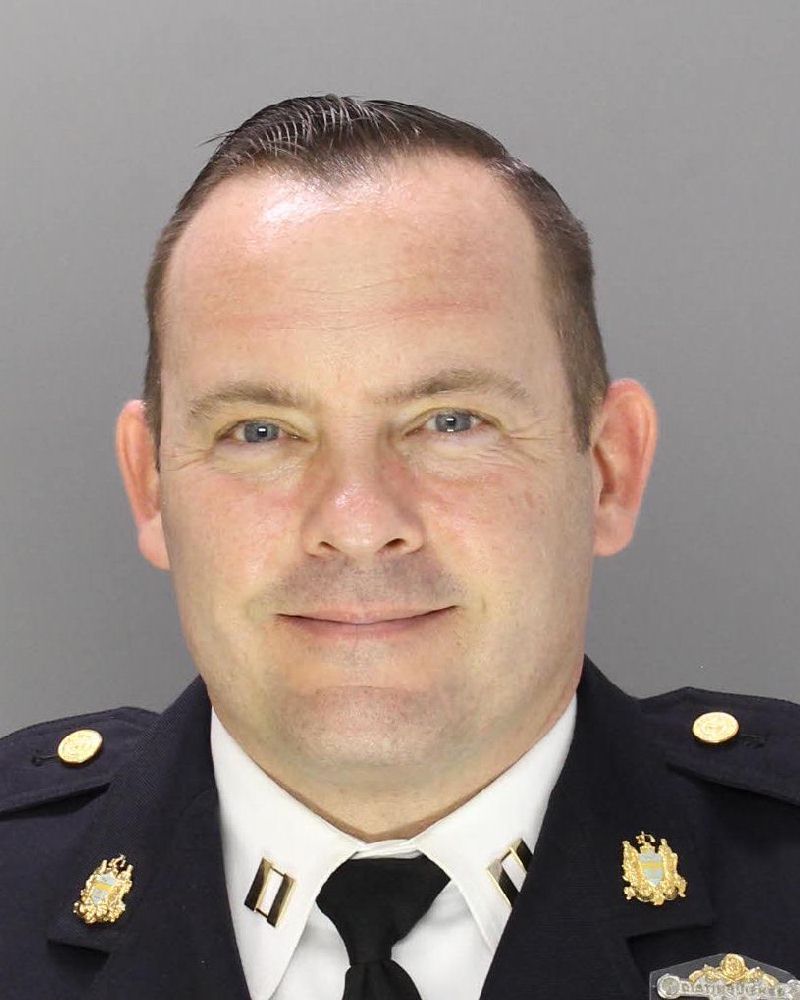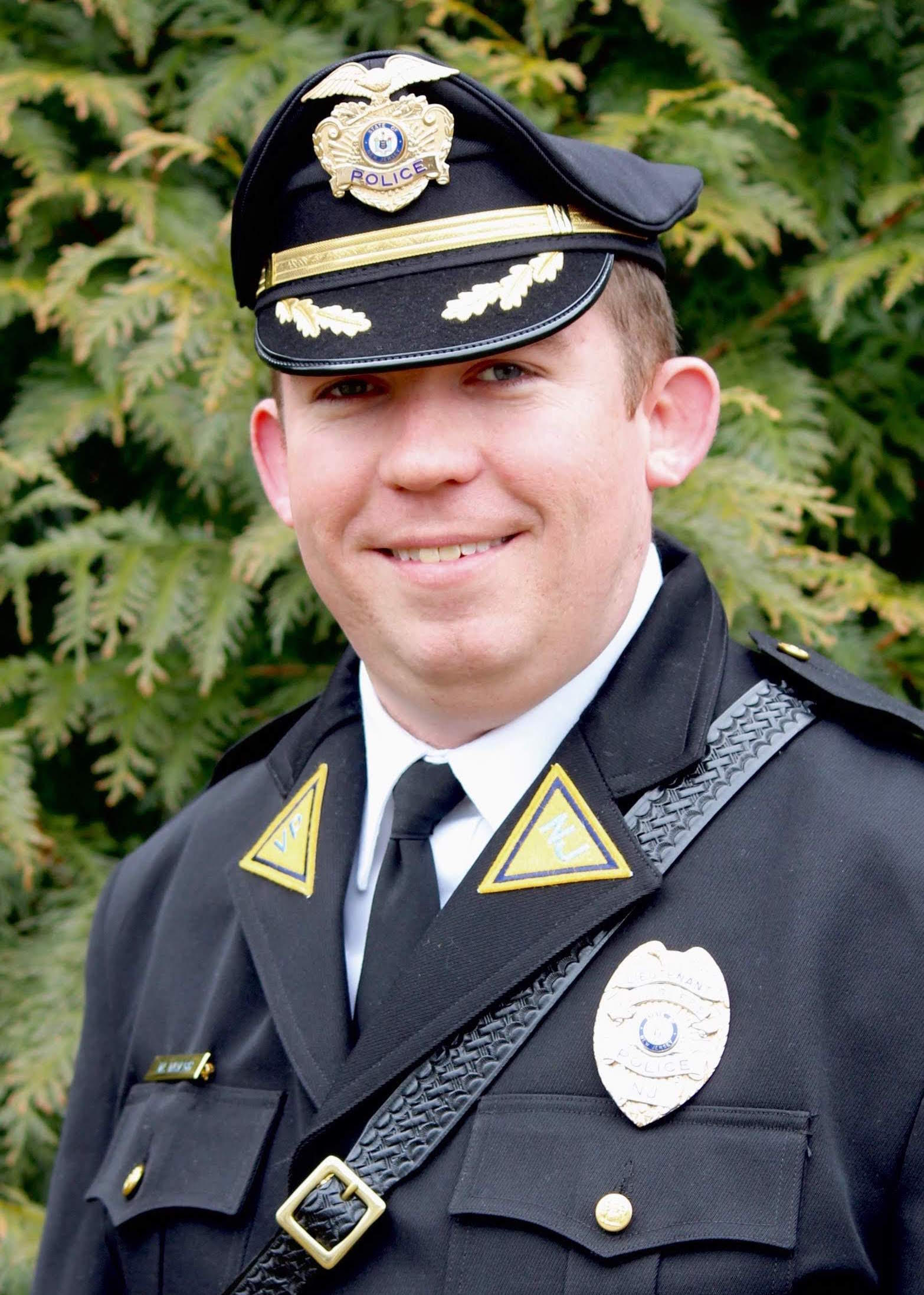Contact Us
To provide feedback on the Community Policing Dispatch, e-mail the editorial board at CPDispatch@usdoj.gov.
To obtain details on COPS Office programs, publications, and resources, contact the COPS Office Response Center at 800-421-6770 or AskCopsRC@usdoj.gov

U.S. Department of Justice
Office of Community Oriented Policing Services
Washington, DC 20530

“I think it’s long overdue,” says Sergeant Timothy Veal of the Philadelphia Police Department (PPD). “I have 26 years on the job and wish I had known how to use the skills ABLE teaches a long time ago.”
Veal is speaking about the Active Bystandership for Law Enforcement (ABLE) Project, a program that teaches officers effective ways to step in when they witness misconduct and helps agencies create a culture that supports such intervention.
Developed by Georgetown University Law Center’s Innovative Policing Program in partnership with the law firm Sheppard Mullin, ABLE grew out of the New Orleans Police Department’s (NOPD) Ethical Policing Is Courageous (EPIC), another peer intervention program.
Both EPIC and ABLE are similar to a third program to be offered by the Collaborative Reform Initiative Technical Assistance Center (CRI-TAC) in late 2021.
All of these programs benefit officers and their agencies by helping to reduce misconduct, disciplinary actions, and citizen complaints. Just as important, the programs also support officer health and wellness.
But to work, an intervention program must have the full support of the rank and file as well as the leadership.
A New Way to Have One Another’s Back
According to Sgt. Veal, who teaches the ABLE program at the PPD, officers are always going to be suspicious of something new, but when they realize that it is designed for their benefit, they become very enthusiastic. “We have been questioned, criticized, and scrutinized so often lately. It’s great to see that there is now a program that’s going to look out for us,” he says.
Police routinely come to the aid of their colleagues, ignoring threats to their own safety to save another officer from physical harm. Intervention training and adherence to intervention practices and a culture of peer accountability can prevent the type of officer behavior that leads to misconduct charges, loss of employment, and criminal prosecution—as well as ensuring safe, lawful policing.
“Knowing that my fellow officers will step in to keep me from going sideways is what makes ABLE work,” Sgt. Veal says. “It brings caring to the forefront of our relations—and brings the department family together.”
Support for Physical and Mental Wellness

Intervening can be important, even in little things—like seat belt use or asking if somebody is sure they want to put something down in a report. Then there’s intervening in personal situations, such as with a death in the family or marital problems.
According to Scott Fraser, Chief of the Brockville (Ontario) Police Services, this training could even prevent suicide.
“I‘ve known officers charged with offences, and know the toll it takes on them and their family. It’s like a black cloud hanging over you and, in a small community, you’re as good as ‘tarred and feathered’ as soon as it hits social media. Your physical health goes down and you suffer from depression too.”

Lieutenant Stephen Clark, a recruiting and training officer with the PPD, agrees. “There are multiple victims when an officer makes a serious mistake. If he or she loses their job, the family suffers with the loss of income and the scandal. If it’s on the news, the kids hear about it in school. The department suffers too, from damage to its reputation.”
Help, Not Insubordination
But recognizing the importance of intervention is one thing; empowering and teaching people how to intervene is another.
“It’s surprising that you have to teach intervention,” says Chief Fraser. “But you do, because essentially policing is a paramilitary organization with a rank structure. Officers look up to their superiors. So they don’t have the confidence to intervene with them, much less do it effectively, and in a way that doesn’t offend anybody.”
ABLE does not teach officers to be abrupt or rude, says Lt. Clark. “It also requires that the intervening officer explain why he or she did what they did immediately afterward. They learn how to do it so there are no hard feelings and people understand how the intervention benefitted them.”
“I have heard officers say, ’I’m glad you stepped in,’ and they’re still on good terms with those who intervened. Training prevents insubordination,” he adds. “And we have policy not to treat an intervention that way.”
“The purpose is to help the officer avoid doing something that would cause harm, to himself as well as to the person involved—not to diminish or make him or her look foolish,” Chief Fraser stresses.
“In some departments, if somebody starts to go off the rails, they will say ‘Officer Coffee wants to talk to you,’ which is code for ‘I’m going to step in here and we’ll have a chat later.’”
Everybody Makes Mistakes

Lieutenant William Walsh, a certified ABLE trainer in the Voorhees (New Jersey) Police Department, says that there was some initial confusion about the program because there are so many mandatory trainings in New Jersey. “But once we explained what it was, they were interested.”
They liked that the strategies were practical and realistic, such as if there’s a hostile prisoner giving the arresting officer a hard time, assign another officer to take the suspect to the processing room.
They also like that ABLE stresses that people in the airlines, the clergy, medicine—every profession—make mistakes. “ABLE is not just a ‘police are doing things wrong’ program, but an ‘everybody makes mistakes’ program,” Lt. Walsh says.
Chief Fraser also points out that ABLE training covers everything, including behavioral science. “Participants learn why people make mistakes, the physiological aspects of stress, when judgement is impaired.”
He describes a scenario in which somebody spits in an officer’s face. “It’s a natural reaction to want to punch that person in face. So you have to intervene right away, so that the person who spits is charged with assault, and not the officer too.”
Civilians Have a Role Too
Though ABLE is working on a new program for civilians, some agencies train them too. According to Sgt. Veal, the PPD trains civilians in the same classroom with officers. “We mix them in so that everybody not only knows how to intervene but [also] is emotionally prepared to receive intervention,” he says.
To drive the importance of this home, the instructors say, “If you ever see a situation in which I need to be intervened upon, I give you permission to do it, to stop me from losing my reputation, job, and pension.”
Civilian employees must have the same ability to speak up when they see something wrong, he adds. “There could be excessive force when a civilian is present, for instance. It doesn’t have to be direct contact either. They could ask an officer to help somebody else.
“Also, civilians work in a police department, so they understand police and have influence in this arena,” Sgt. Veal adds.
Chief Fraser agrees. “It could help in situations such as inappropriate behavior, or even prevent an assault because a joke is going too far. This training covers many bases. It’s not just about police on the street; it includes behavior in the headquarters.”
“ABLE training also addresses difficult conversations,” says Lt. Walsh, “showing officers how to help people dealing with stress, for instance.”
Community Support and Professionalism
Another highly regarded benefit is the community reaction.
Says Sgt. Veal, “While I was teaching at a civilian police academy, I gave the class an overview of ABLE to see how they viewed what we are doing to police ourselves. They were very excited about it.
“Providing this training tells the public that we are taking an extra step to ensure that there will be no misconduct in our police department.”
“Intervention programs are going to positively affect law enforcement,” Lt. Clark says, “particularly with the younger officers for whom it will become standard policing policy. Adopting intervention programs is going to professionalize us more. It’s important that it becomes part of law enforcement culture everywhere.”
Faye C. Elkins
Sr. Technical Writer
COPS Office
Subscribe to Email Updates
To sign up for monthly updates or to access your subscriber preferences, please enter your email address in the Subscribe box.






